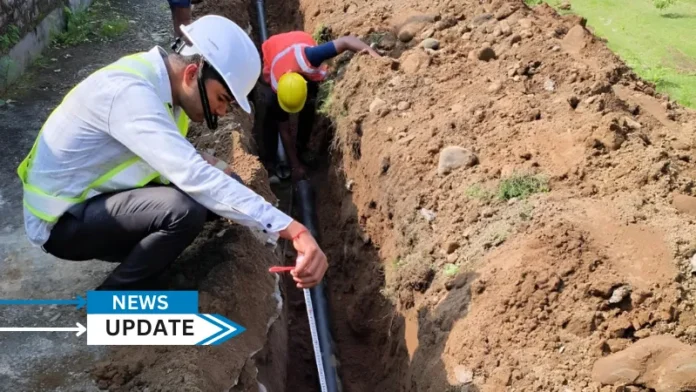
The Asian Development Bank (ADB) has approved a $200 million loan to help upgrade water supply, sanitation, urban mobility, and other urban services to enhance the quality of life and climate resilience of the people in Uttarakhand India.
Read also – FreeWill Acquires Grant Assistant
The Uttarakhand Livability Improvement Project will improve transportation and urban mobility, drainage, flood management, and overall public services in Haldwani, which serves as the state’s economic hub.
Read also – Stream.Security Secures $30 Million in Series B Funding
To enhance water supply service delivery in Champawat, Kichha, Kotdwar, and Vikasnagar, the project will finance the implementation of efficient and climate-resilient water supply systems.
“Uttarakhand’s high vulnerability to climate and environmental risks such as floods and droughts adds to the pressing challenges in delivering good public services that are faced by the project towns,” said ADB Senior Urban Development Specialist Pedro Almeida. “With a projected increase in rainfall, temperatures, and flooding and landslides, upgrading infrastructure in these areas is critical not only to improve livability but also to ensure the population’s safety and health.”
In Haldwani, the project will develop 16 kilometers (km) of climate-resilient roads, establish an intelligent traffic management system, deploy compressed natural gas buses, and pilot electric buses. To prepare the city against disasters, the project will construct 36 km of stormwater and roadside drains to improve flood management and implement an early warning system. A green-certified administrative complex and bus terminal will be built to enhance the delivery of public services.
In the towns of Champawat, Kichha, Kotdwar, and Vikasnagar, the project aims to increase water service coverage to 100% by constructing 1,024 km of climate-resilient pipelines with smart water meters, 26 tubewells with a daily capacity of 72,131 cubic meters, new reservoirs with 17,350 cubic meters of storage capacity, and a 3.5 million liter per day water treatment plant. Sanitation coverage in Vikasnagar will be improved by sewage treatment facilities that will benefit around 2,000 households.
The project will implement measures to strengthen the institutional capacity of the Uttarakhand Urban Sector Development Agency and urban local bodies in project management, climate and disaster-resilient planning, and urban infrastructure management.
The project will introduce initiatives for women, such as livelihood skills training on driving buses, bus ticketing, and the operation of electric charging stations. Given women’s role in monitoring water supply systems, the project will build the capacity of women, including those from vulnerable households, in operating and managing water supply and sanitation services. The project will pilot women-led community engagement in water bill distribution and collection in the four towns.
The European Investment Bank is co-financing the project with $191 million on a parallel basis, while the state government is contributing $74.9 million—bringing the total project cost to $465.9 million.
ADB is committed to achieving a prosperous, inclusive, resilient, and sustainable Asia and the Pacific while sustaining its efforts to eradicate extreme poverty. Established in 1966, it is owned by 69 members, 49 of whom are from the region.
The Asian Development Bank (ADB) is committed to achieving a prosperous, inclusive, resilient, and sustainable Asia and the Pacific while sustaining its efforts to eradicate extreme poverty. It assists its members and partners by providing loans, technical assistance, grants, and equity investments to promote social and economic development.
About ADB
Established in 1966, ADB is owned by 68 members, including 48 from the region. Its main instruments for helping its developing member countries are policy dialogue, loans, equity investments, guarantees, grants, and technical assistance.
ADB’s vision is to achieve a prosperous, inclusive, resilient, and sustainable Asia and Pacific while sustaining its efforts to eradicate extreme poverty. Despite the region’s many successes, one in three people still lives under $3.20 a day—that’s 1.24 billion people. ADB will continue to prioritize the region’s poorest and most vulnerable countries.





